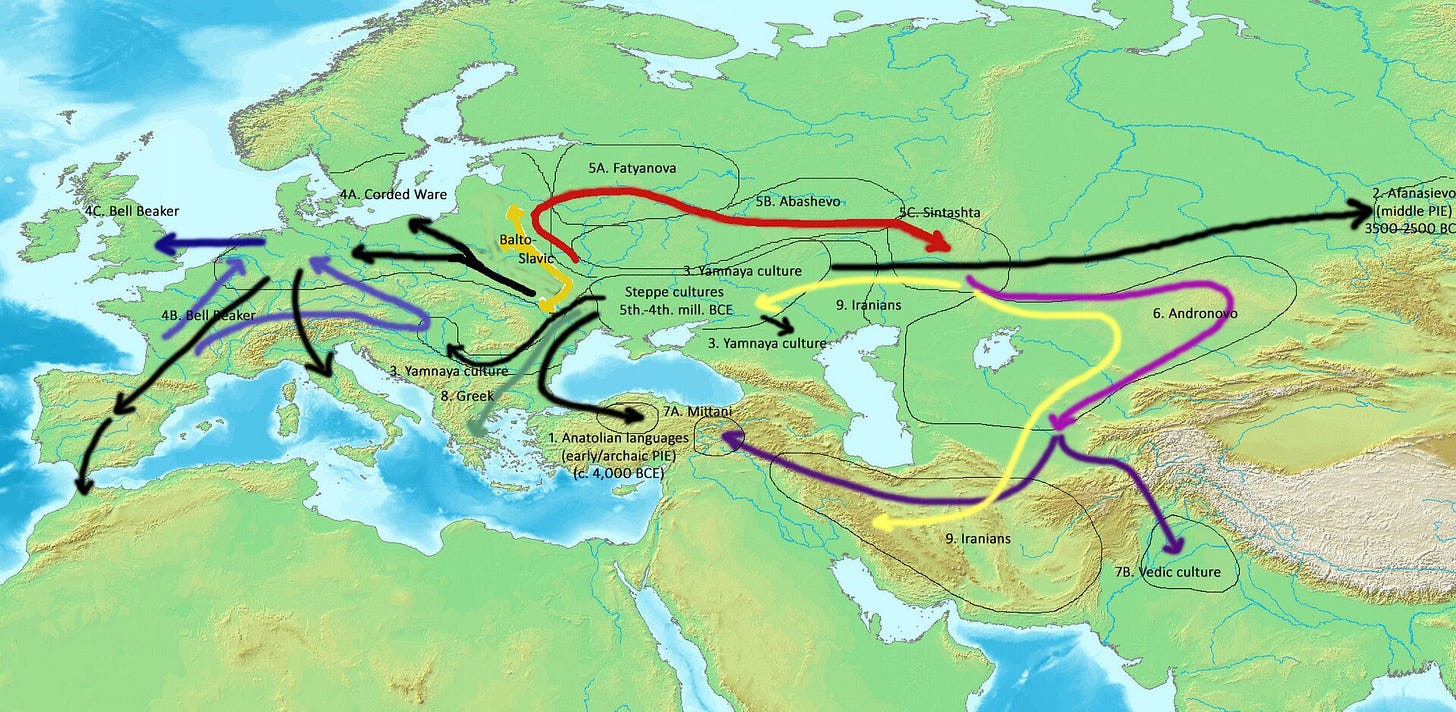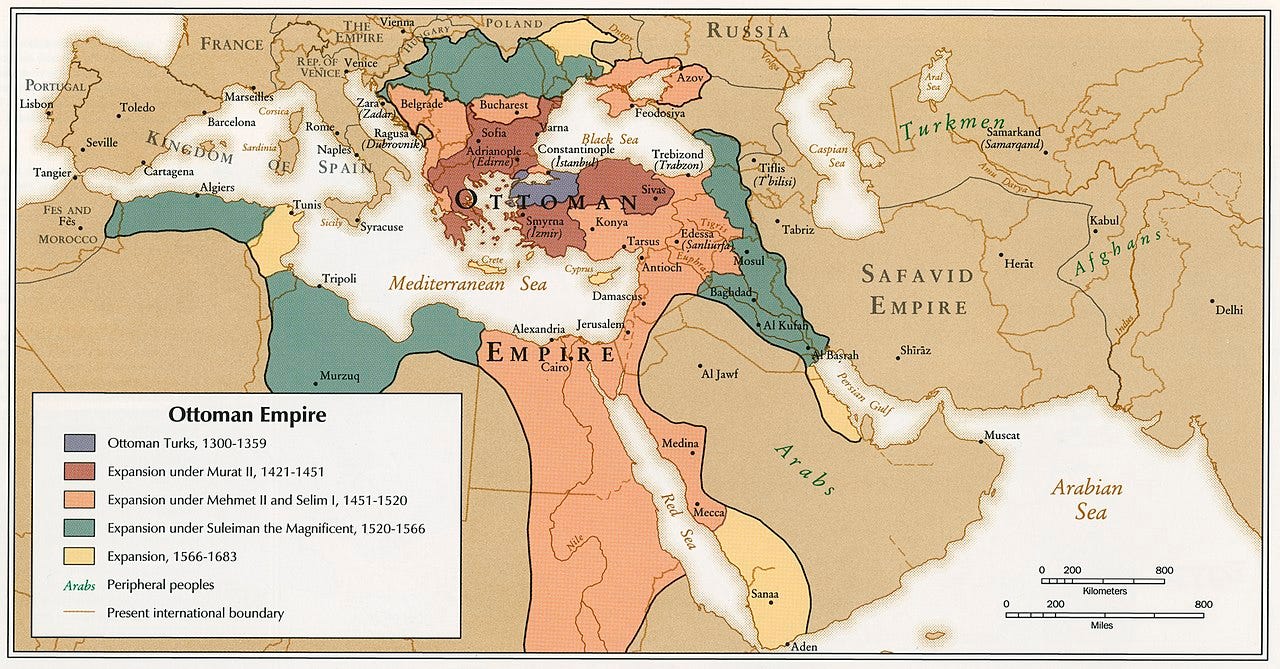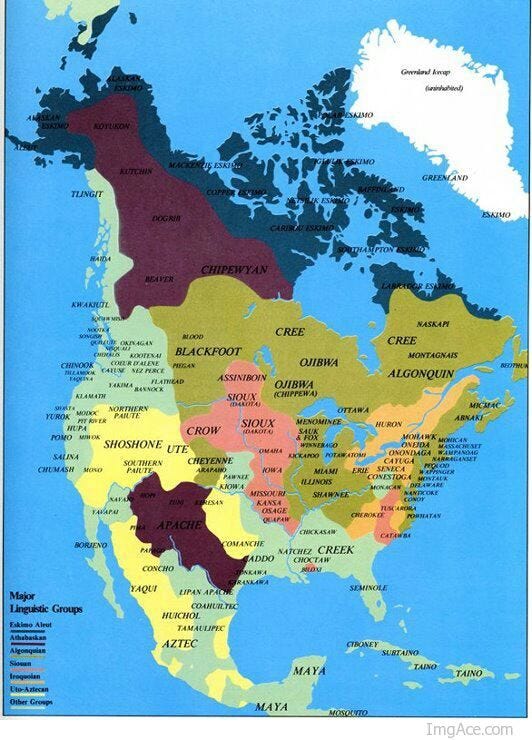Western Life Is Only One Way to Live
The "march of civilization" is the West's founding myth. And yes, it's a myth.

“Is modern capitalist man the inevitable end of social evolution? Many believe it is. Or is our current culture merely a choice, and a bad one, a choice that somehow went global?”
—Yours truly, here
The questions about capitalism that are more and more being asked — Is it inevitable? Is it the cause of our grief? Are there really alternatives? — are related to the questions we’ve been exploring in our “Dawn of Everything” and “Western hegemony” series.
Capitalists would have us believe that the forward march of what they call “civilization” is linear; it’s not a flowering bush with a great many ends, but a single-stemmed rose topped by what we experience as rapacious capitalism, or some other flavor of that — control for the few, exploitation for everyone else.
There’s no avoiding capitalist state organization, according to them, and there’s nothing further ahead — no Star Trek utopian world where greed disappears, social hierarchy is flatter and money’s an artifact of a less evolved time. That’s fantasy, they say; freedom means freedom to chase money and food, or starve.
And yet…
The West Is Not the World
And yet, while the West, overrun and ruled by warlike Indo-Europeans since pre-literate days, lived lives organized like this…

…and further east, organized like this…

…not all of the world followed suit.
Life in Non-Hierarchical America
If states and empires, exploitation and greed, rigid social hierarchy and exploitation of labor are the inevitable endpoint of “evolving” toward “civilization,” what accounts for this? How did it remain stable?

Note: These are language groups, not nations.
Yes, some of these places held kingdoms — the Aztec, the Mayan — but most did not. Most held people who lived in villages and tribes, with flat social hierarchies, no enforced labor, no communities of men and women starved for food while those around them ate well and picked at their bones.
Can you imagine Original Americans allowing most to die while a few hoarded all the food? The hoarding itself would have been thought a crime, and punished severely.
When Original Americans (those we call “Indians”) encountered Europeans, they were appalled at the way they lived. For example, here’s how whites treated whites along the Oregon Trail (transcribed by the author from an Oregon Trail museum display):
Many travelers expressed mixed feelings about the forts [that dotted the trail]. They were eager to see them, but complained about what they found. The prices were too high, the inhabitants too savage [the museum’s language], and their appearance disappointing.
Chester Ingersoll wrote in 1847 that Fort Hall was “the worst place ever for emigrants that we have seen — they are almost destitute of honesty or human feelings.”
In contrast, when the “emigrant” whites, those in the wagon trains, encountered Original Americans, they found help. This is another transcription from a museum display about life on the Oregon Trail:
The First Ones
Cayuse. Walla Walla. Nez Perce. People who have lived for centuries in a land you’ve never seen before. Superstition and fear [of Original Americans by the emigrants] gradually fade as the Indians offer guidance for the lost, horses for the hobbling, and food for the hungry.
Tonight, after trading with a Cayuse fisherman, you’ll enjoy fresh salmon. The cost? Two fishhooks and a red flannel shirt.
The difference between the two in treatment of others? Culture. Ways of living. Values. The culture of the West as displayed by those in the fort. The culture of non-Western Americans as displayed by their welcome. Life in the 1500s on two different continents.
Bottom Line
“Civilization” and “freedom” as we know it, we in the father-god West, was a choice by our conquering ancestors, an inherited culture, just one way to live. There were and are other ways, with much different values.
Life doesn’t evolve on a line from “savage” to “civilized.” That’s a myth of the West, almost its founding myth. What we call “civilization” is actually savage, and others have chosen differently.
As can we, the minute we want to.




Apparently, when Sitting Bull toured as part of Buffalo Bill's Wild West Show, it blew his mind that white people would allow members of their tribe to go hungry when other members of the white people tribe had food.
Apparently Sitting Bull gave much of his earnings away to beggars. (Buffalo Bill, FWIW, was honest in paying native members of his shows.)
For an interesting look at the spread of the Indo-Europeans through the spread of their language, see Proto by Laura Spinney. There has been tremendous progress in our understanding of this spread as linguists, archaeologistss, and geneticists have been cooperating. Recent improvements in extraction of ancient DNA have powered a new batch of theories.